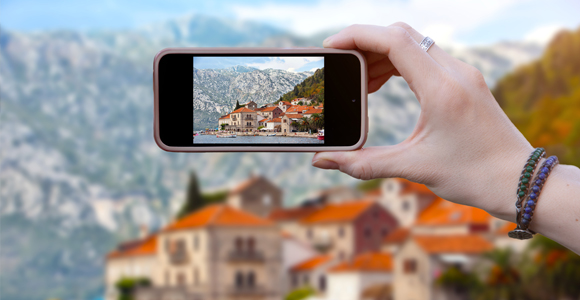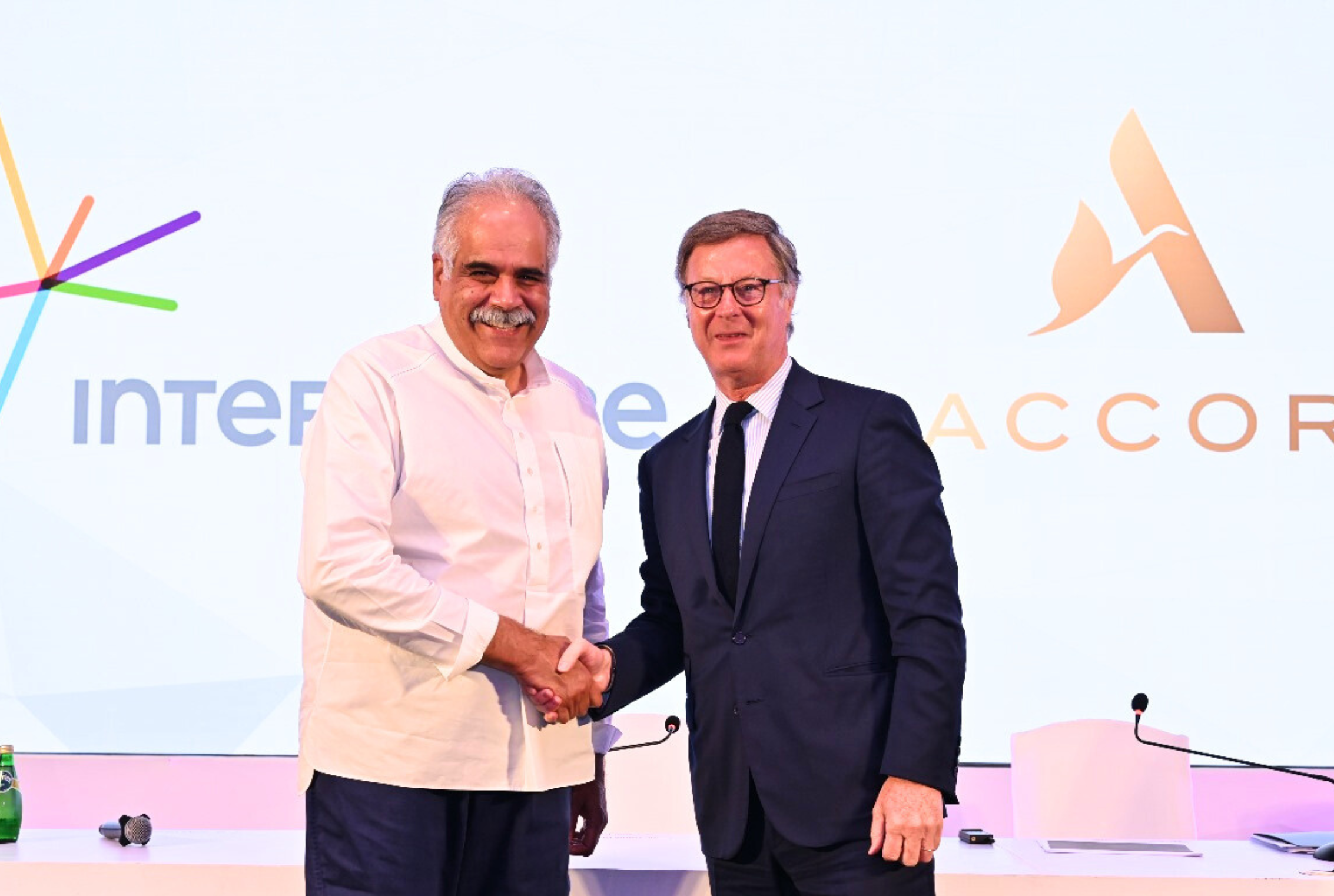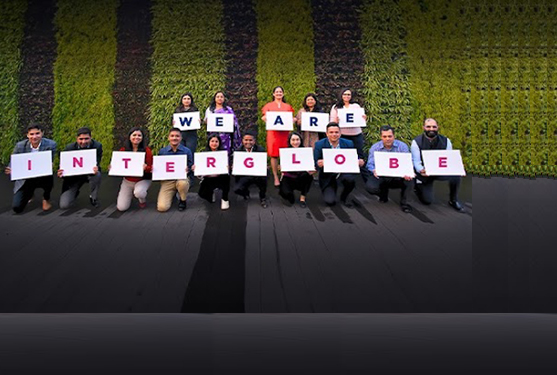

Social Media and its impact on Travel
The use of social media has become widespread. It has altered the ways in which we interact with one another, use available information, and make purchases. The travel and tourism industry has also undergone a significant transformation in the past decade due to the emergence of social media. According to a survey, around 43% of people currently travelling won’t even consider a destination without finding it on social media first. The hashtag "travel" has more than 74.4 billion views on TikTok, while Instagram features over 624 million posts related to travel. These statistics illustrate the notable impact of social media on prospective travellers, its influential role in the travel industry, and its potential for promoting diverse destinations.
Social Media Inspires Travel
Social media has the power to break down barriers and bring people together. This presents various opportunities for people to engage in travel, connect with diverse cultures, and explore new destinations. The advent of social media has not only facilitated the planning of trips, but also enabled the sharing of travel experiences, thereby serving as a source of inspiration for others to embark on their own journeys. It has altered the way people find information about travel destinations. The vast amount of content available on digital and social media gives travellers a better idea of what to expect before they arrive at their destination and has made it easier for people to discover unique and off-the-beaten-path destinations they may not have heard of before.
Increased Travel Knowledge
With the help of social media platforms, we can now find information about any destination quickly and easily. Due to the thousands of travel influencers and millions of travel posts available, there is a mountain of data on locations. A significant proportion of travellers now select vacation destinations based on the content they have seen on social media platforms. Information about exotic locations, complete with stunning images, is easily accessible to modern travellers and encourages them to visit these destinations.
Influences travel decisions
According to a survey, over 35% of all travellers use social media to inspire their travel plans. The influence is much higher among the younger generations. 50% of travellers under the age of 40 use social media as a source of inspiration. A large percentage of millennials, who are typically aspirational and experience-driven travellers, base their trip decisions largely on how Instagrammable a given destination is. Social media has also made travel easier. Almost every step of the travel process, from planning to booking to customer service, can now be handled through a social media platform. Additionally, this platform also facilitates seamless interaction of tourists with locals, enabling them to gain valuable insights and creating opportunities for more authentic experiences.
Research and reviews
The rise of social media has led to a more transparent landscape for travel. Individuals are increasingly inclined to share their experiences, enabling travellers to gain insights into both the positive as well as the negative aspects of a particular destination. This wealth of information serves as a valuable resource for making informed decisions. People also dedicate a significant amount of time to conducting research prior to embarking on a journey to a new destination. Online reviews have become an essential resource for making informed decisions regarding accommodations, food, local attractions, and more.
Influencer marketing
Through social media platforms, travellers also share their experiences with a larger audience than ever before, resulting in the rise of "influencer" travellers who use their online following to persuade others to visit similar destinations. Content in various formats such as reels, shorts, and vlogs has gained popularity among consumers to explore different destinations and gather valuable insights for planning their upcoming trips. Due to their substantial following, influencers possess the ability to impact the travel choices of their followers and have become a valuable tool for travel companies seeking to collaborate with them to promote their services and enhance public awareness.
The points presented above clearly demonstrate that social media has a significant role in the travel industry. It helps inspire travellers, influence their travel decisions, and promote various travel destinations.



Social Media and the Travel Industry
Social media has emerged as an essential tool for the travel industry, offering numerous advantages for hotels, travel agents, and online travel agencies (OTAs). With billions of active users on major social media platforms, such as Facebook, Instagram, Twitter, WhatsApp, and TikTok, they present unparalleled reach to businesses operating in the tourism sector. Social media platforms provide marketing opportunities that empower travel marketers to implement comprehensive strategies and effectively engage their target audience. The platforms are also used to create more engaging and personalised campaigns for their target audience, as well as attract users with promotional offers and giveaways. Companies also use these platforms to interact with customers by responding to their posts, queries and messages and by providing guidance on their services.
Social media provides companies with powerful tools to reach large audiences and build relationships with people all over the world. It also enables businesses to measure and track the impact of their marketing campaigns, monitor customer engagement and conversions, and optimise campaigns for the best possible results
It can therefore be confidently stated that social media has become a crucial component of the strategic operations employed by tourism companies. It is now an invaluable business tool due to its extensive reach, efficient customer service, and user-friendly booking options. According to the International Tourist Research Centres, 88% of tourism businesses actively employ social media platforms to promote travel and assess consumer sentiments.
The Challenges posed by the Digital Media
The use of social and digital media has greatly benefited the tourism industry, resulting in significant sales growth and increased customer engagement. However, it is important to acknowledge that there are also several challenges associated with these platforms. The brand image of a company is a crucial aspect that significantly contributes to its success and performance, but the presence of negative interactions and reviews on social media can present a significant challenge, as it may dissuade prospective consumers from proceeding with their travel plans or engaging with the company. Social media can also be used to spread misinformation. This can have a negative impact on the tourism industry and can deter people from visiting certain destinations. Additionally, companies need to know that privacy laws vary from country to country. Content that might be acceptable in one country might not be acceptable in another, so companies need to stay up-to-date on the latest regulations and laws. Social media campaigns can be costly as well. Companies must carefully manage their budgets to make sure that their campaigns are cost-effective and profitable.
Overall, it is important for companies to be careful when using social media for their marketing campaigns and to be aware of the potential risks that may arise. With the right strategies and techniques, social media can be a powerful tool for helping travel and tourism businesses succeed.
Conclusion
It is quite clear that the increasing influence of social media has significantly impacted the tourism industry, and this influence is continuing to grow in prominence. As a significant proportion of leisure travellers now rely on social media for travel inspiration and to share their travel experiences, social media has emerged as an important tool for travel companies. A traveller spends, on average, over 400 digital moments before making a booking decision. This means that not only does digital media inspire us to travel, but it is also a trusted source of information, verification, and recommendations. It is therefore becoming an essential component of travel and tourism companies' strategic operations to target potential customers, engage with existing customers, and promote their services.
Social media platforms provide companies with the opportunity to establish direct connections with travellers, enabling them to gain valuable insights into their behaviours and preferences. Brands have leveraged the expansive reach, paid advertising, and advanced targeting options offered by social media platforms to widen and diversify their audience base, connecting with a larger spectrum of people from across the globe. In the future, digital media has the potential to emerge as one of the largest influencers in the global travel industry, driving growth simultaneously as it keeps connecting more and more travellers to their favourite brands.
In conclusion, social media is here to stay, and companies need to be ready to take advantage of its reach and potential. With the right strategies and techniques, it can prove to be an invaluable tool in helping travel and tourism businesses succeed.
Sources-

to portrait mode for better viewing







